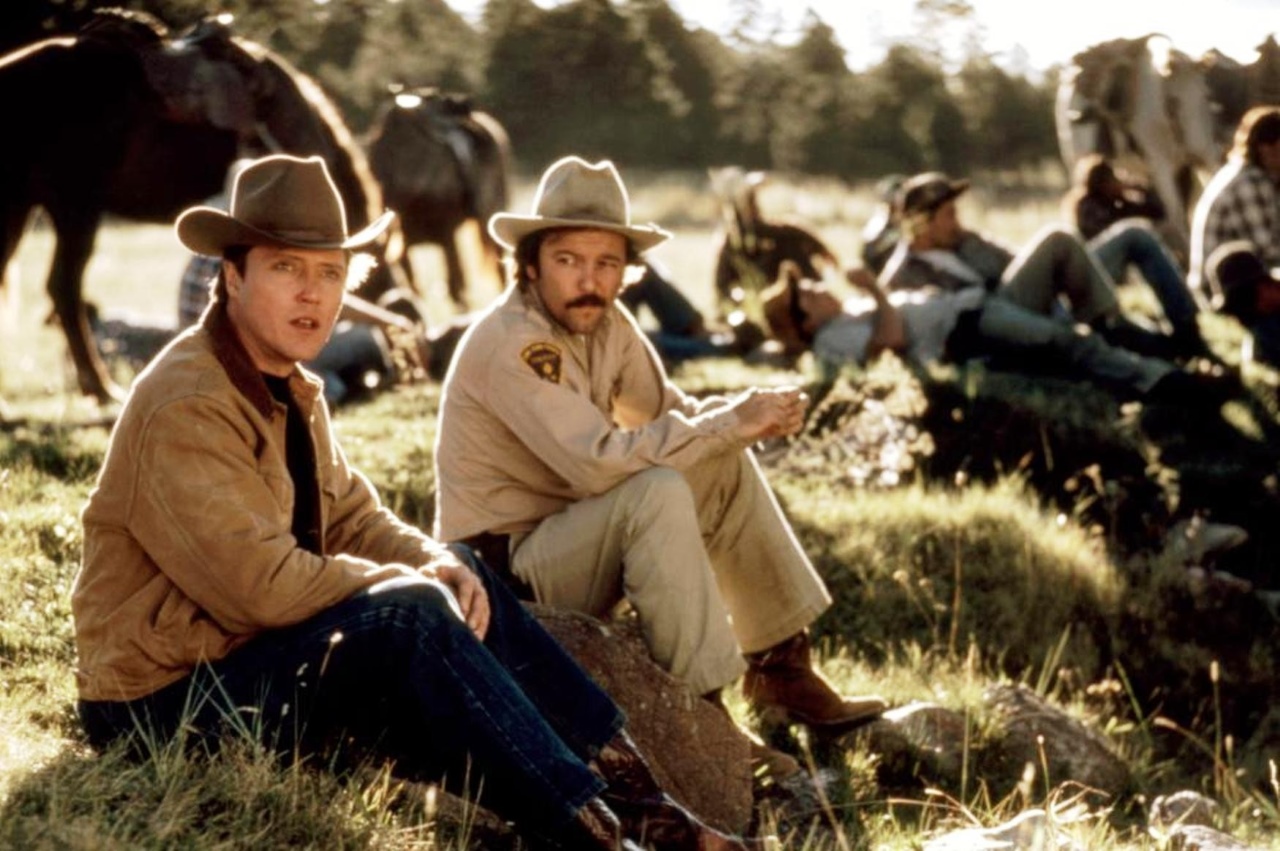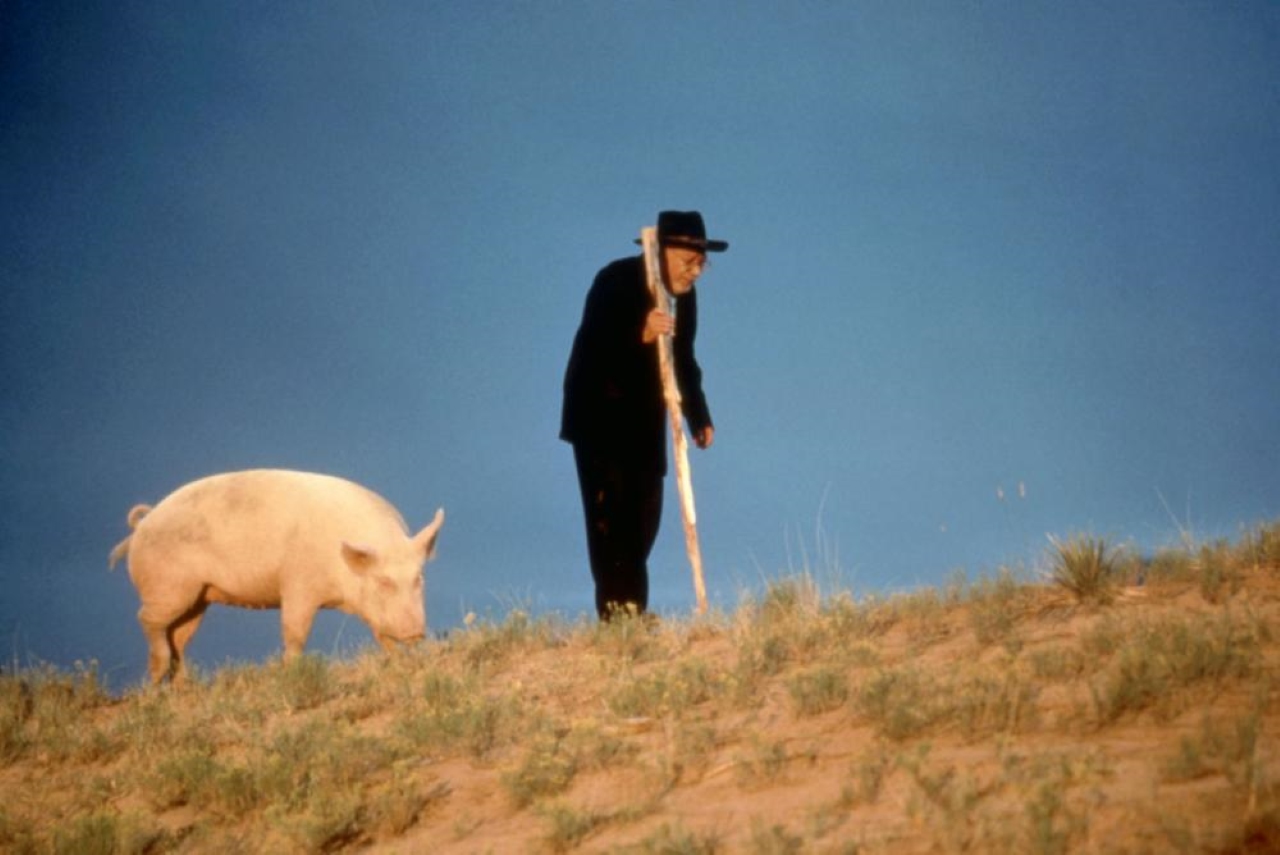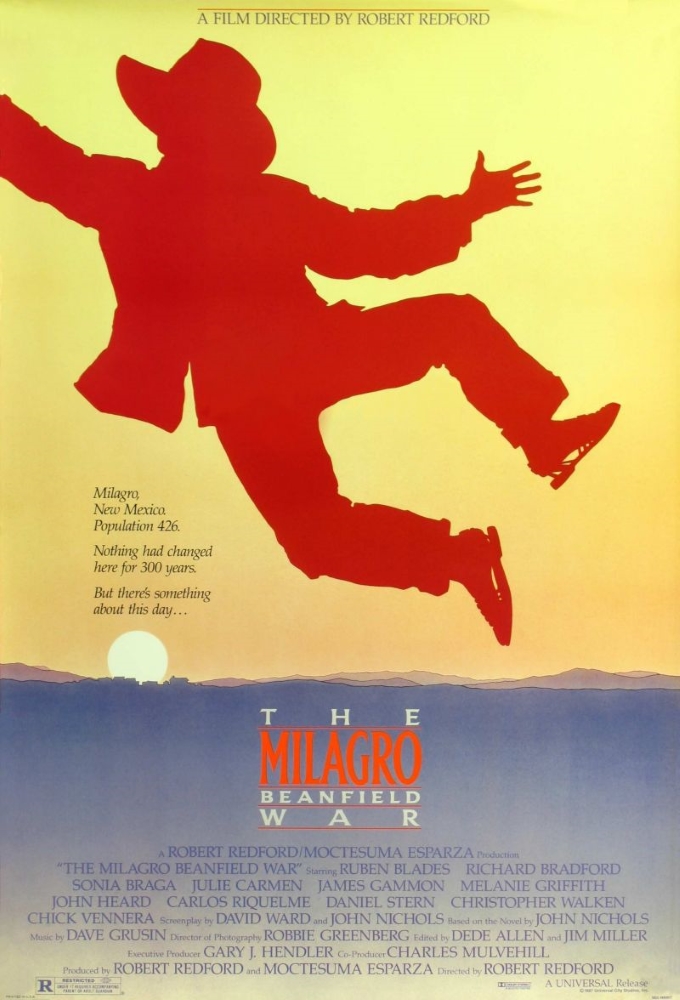Crew
Director – Robert Redford, Screenplay – John Nichols & David Ward, Based on the Novel The Milagro Beanfield War (1974) by John Nichols, Producers – Robert Redford & Moctezuma Esparza, Photography – Robbie Greenberg, Music – Dave Grusin, Production Design – Joe Aubel. Production Company – Redford-Moctezuma.
Cast
Chuck Vennera (Jose Mondragon), Carlos Riquelme (Amarante Cordova), Sonia Braga (Ruby Archeluta), John Heard (Charlie Bloom), Christopher Walken (Kyril Montana), Daniel Stern (Herbie Platt), Ruben Blades (Sheriff Bernabe), Richard Bradford (Ladd Devine Jr), Robert Carricart (Angel), Julie Carmen (Nancy Mondragon), Melanie Griffith (Flossie Devine)
Plot
Property developer Ladd Devine Jr moves into the small, impoverished New Mexico town of Milagro with the intention of building a new housing development. The unemployed Jose Mondragon is angry at being refused work by Devine’s people. On the way home, he kicks at the divider that diverts water from the river but which the townspeople are prohibited from using because it has been classified for official use. In so doing, he causes the water to flow into his property and then uses it to irrigate his beanfield. This angers Devine and the town authorities who are in his pay but they are too afraid to do anything to stop Mondragon lest it draw media attention to the housing project, which will end up forcing the townspeople off their land. They try to use other means to force Jose to stop, including bringing in a hitman. However, the townspeople champion Jose’s cause. As the fight becomes dirtier and larger in scale, the angels step in to help the little guys of Milagro.
Usually best known as an actor, Robert Redford has maintained a sporadic but strong and worthwhile secondary career as a director. His first directorial outing was the painfully serious, Academy Award-winning middle-class angst drama Ordinary People (1980), which is actually his dullest film. The Milagro Beanfield War was his second outing and is a charming whimsy that sees him in a positively more playful mood.
Into the 1990s as he has entered his sixties and seventies, Redford’s turns as a leading man have taken increasingly more of a backseat to his work as director and as the spiritual godfather of the Sundance Film Festival. During this time he has directed well-above-average films such as A River Runs Through It (1992), Quiz Show (1994), The Horse Whisperer (1998), The Legend of Bagger Vance (2000), Lions for Lambs (2007), The Conspirator (2010) and The Company You Keep (2012). Redford is a strong environmental advocate and has fought a number of causes in his home state of Utah. Most of Redford’s later films – A River Runs Through It, The Horse Whisperer and The Legend of Bagger Vance – also share the same quasi-fantastical themes of The Milagro Beanfield War, of characters who eventually arrive at a place of genteel, almost-mystical harmony with nature and the environment around them.
The Milagro Beanfield War was one of the first American films to fall into the Latin American tradition of Magical Realism. This is a genre that usually involves an earthily naturalistic, often highly romanticised, blend of the supernatural and whimsical. Redford arrays a colourfully earthy ensemble of characters. The plot falls into place with lazy, deceptive ease. Redford places it up against a gently barbed level of social commentary, although this is something that comes surprisingly light-heartedly.


There is an enchantment to The Milagro Beanfield War – at times it is a more successful version of the folklore fable that Francis Ford Coppola’s Finian’s Rainbow (1968) tried to be but failed. At its most evocative, there is the opening appearance of the angel in a whirlwind, dancing through the sleeping streets, accompanied by the wonderfully lilting score, which picks up and dances right along too. The religious mythology of Latin America is nicely evoked – even touchingly so as Daniel Platt’s character eventually comes to find faith.
It is a film filled with warm performances – with Sonia Braga being particularly good. The one performance that stands out over everybody else is native Mexican actor Carlos Riquelme as the aging, eccentric Amarante Cordova, matter-of-factly trading food stamps to buy bullets, playing chess with the angels and a marvellous vignette where he tries a Walkman on the first time.
The sad reality about this inordinately charming film is the indifferent box-office that it was met with when it came out. As a director, Robert Redford’s films have a thoughtfulness and intelligence that make them always worth the time.


